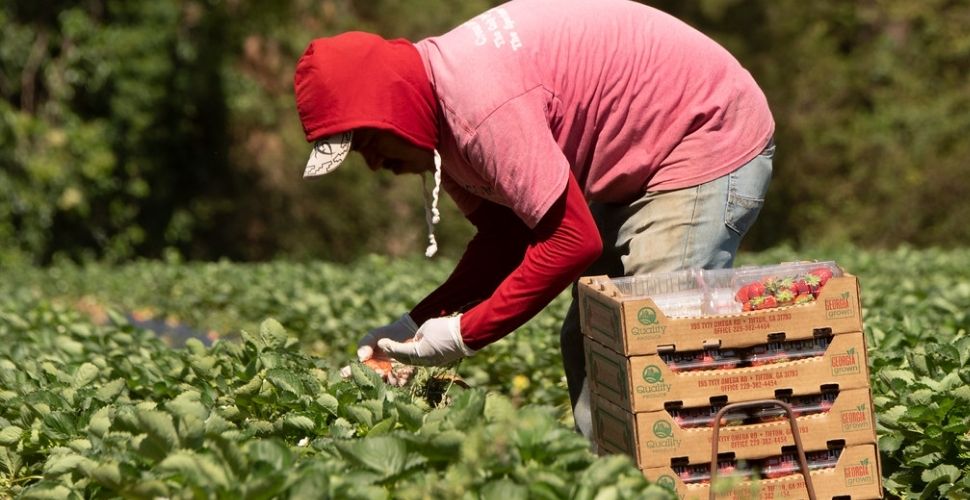Under the H-2A temporary agricultural visa program, migrant workers are able to travel to work in the U.S., providing crucial labor to farms and agriculture and ensuring food is kept on Americans’ tables. But workers’ right to live and work in the country is directly tied to their employer creating a power imbalance that leaves workers on the H-2A visa vulnerable to trafficking and exploitation.
A lawsuit filed in August on behalf of 24 agricultural workers from Mexico alleges that their employer Mauricio Luna coerced them into accepting work in the U.S. under false pretenses, forcing them to work under threats and intimidation. Traffickers and unscrupulous employers are able to leverage workers’ fear of losing their job and even being detained and deported if they are seen to not be meeting the conditions of their visa.
Mariyam Hussain, supervisory attorney of Legal Aid Chicago’s migrant farmworker project said, “Our clients report that they were chronically underpaid, worked excessive hours under difficult and dangerous conditions, and were threatened when they protested. They are entitled to be paid for the hours they worked, and remedied for any systemic abuse of the agricultural worker program.”
Anyone entering the U.S. on the H-2A temporary agricultural program should go through an interview process with U.S. authorities to inform them of their rights but these interviews didn’t take place over the pandemic.
Without being aware of their rights, facing language barriers and having no support networks in the country, migrant workers entering the country under this program are made more vulnerable to trafficking and exploitation.
Over a six-month period during the pandemic, U.S. anti-trafficking NGO, Polaris, recorded a 70% increase in the number of potential trafficking survivors who hold a H-2A visa.
The Counter reports:
Labor trafficking occurs across industries, but it is especially prevalent in agriculture. Between 2015 and 2019, Polaris found that about 87% of the more than 3,600 human trafficking survivors who were legally working in the U.S. held H-2A and H-2B visas. The organization reported 78 potential human trafficking survivors with H-2A visas in Illinois between Jan. 2015 and Dec. 2020.
In Illinois, the use of the program has increased in the past years, from 588 workers certified to work in the state in 2010 to 2,965 in 2020. Across the country, according to the U.S. Department of Agriculture, the number of certified H-2A visas increased more than fivefold between 2005 and 2020, from around 48,000 to over 275,000.
Freedom United is calling on California to implement better protections from trafficking and forced labor for all migrant workers on temporary visas. Add your voice to the campaign today.







Freedom United is interested in hearing from our community and welcomes relevant, informed comments, advice, and insights that advance the conversation around our campaigns and advocacy. We value inclusivity and respect within our community. To be approved, your comments should be civil.